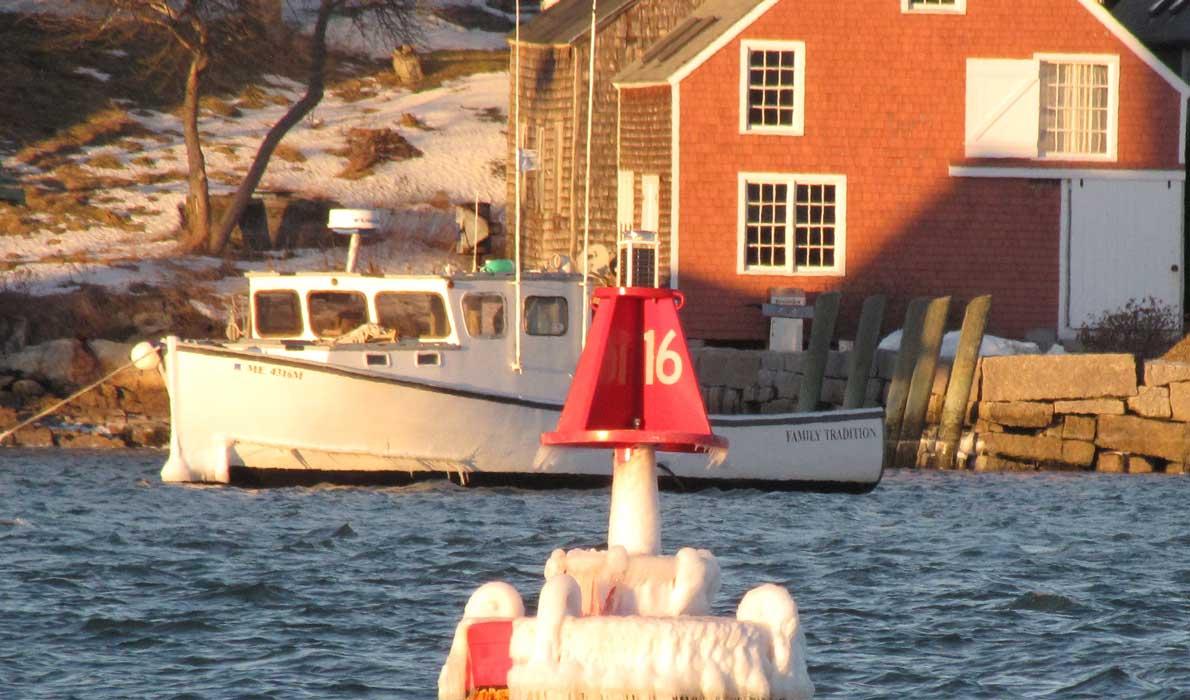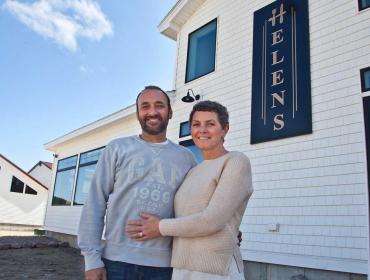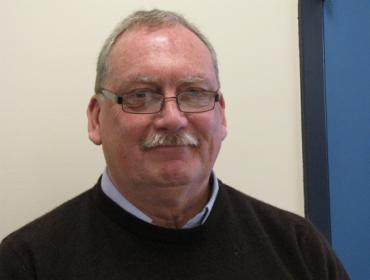Posted November 21, 2016
Last modified November 21, 2016
I love Christmas on North Haven. Colored lights criss-cross Main Street, the community gathers at Waterman's for hot chocolate, cookies and carols before a tree lighting, and we usually have at least a dusting of snow.
Paradoxically, perhaps, for a Jewish person, I look forward to the church service the most. We've been in California with my in-laws for the last two years and have missed it, and I can't wait to attend this year. I play trumpet, ukulele and recorder with the small orchestra, and sing in the choir.
I never fail to tear up when the whole congregation sings “Silent Night,” swaying with their tiny candles. Sometimes my husband composes or arranges a piece especially for the evening. Afterwards, we go over to the minister's house for quiche.
North Haven Christmas for me is a warm and wonderful way to participate in the culture of my friends and neighbors. Of course, I'd be participating whether I want to or not. My tax dollars contribute to the colored lights and the tree lighting. At school, although Chanukah and Kwanzaa get due lip service at our pre-holiday celebration, it's How the Grinch Stole Christmas that's the focus of the day.
I grew up in Maine, and the secular Christian norm was as pervasive then as it is now. Between singing hymns and carols in the New Sharon Elementary School Christmas Concert and eating red and green cookies before vacation, I would be asked to bring in my menorah and tell the story of Chanukah. I liked the attention, when I was ten, and I liked the idea that I was somehow broadening my classmates' minds.
Looking back, it seemed like a perpetuation of the non-normative nature of my culture. My teachers certainly weren't informed about Judaism, and sometimes gave actual misinformation. My sister's fifth-grade teacher told her class that Judaism was a branch of Christianity. Her correction wasn't well received.
My daughter is the only Jewish kid in her class, too, although that's not meaningful for her yet. Her teachers have created activities for all of the toddlers around lots of holidays, Purim and Rosh Hoshanah included. They eat apples and honey or poppy-seed cookies and have costume parades. They wear orange and black on Halloween.
It's all good fun, and to me, it seems like a terrific validation and normalization of all of the cultures represented in the class when the information comes from the teachers and not only from the children representing those cultures.
But it's controversial. Some fervently believe that no holidays should be celebrated in schools, because of the principle of separation of church and state. Others argue that we shouldn't celebrate any because how could you possibly get to all of them? Diwali, Eid, Lunar New Year—are they any less worthy of mention than Chanukah or Christmas or Gregorian Calendar New Year? Does it depend on the ethnic and religious make-up of the class?
My inclination is that more conversation about our vibrant differences, and active participation in the celebrations of others cultures, not less, is the way out of the quagmire of racial and religious misunderstanding we as a nation—a world—have blundered into. Women are shamed on the beaches of Nice for wearing clothing in which they feel comfortable. Millions of refugees are painted with the broad brush of terrorist. Anti-Semitic slurs are on the rise across the United States.
I don't know what my daughter's class can accomplish on a global scale by sitting down together and sharing some latkes before they go to the tree lighting. I have hope, though. If “Jewish” can mean apples and honey in September, and “Muslim” can mean dates and milk and henna, then perhaps my daughter's generation can have the same positive feelings about other cultures that I have: for me, “Christian” is lights and singing and snow.
Courtney Naliboff lives, writes and teaches on North Haven.
Contributed by




